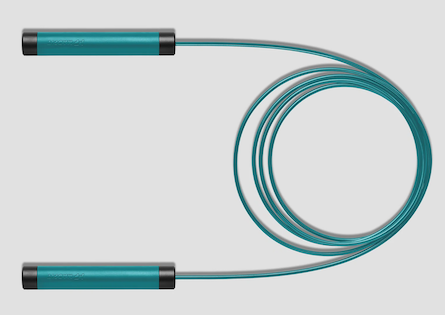As winter starts to thaw, we put away the puffers, and peel off the layers, many of us have a spring awakening by what’s left underneath. The body is not as toned as we’d like, and there is a spring realization that it’s time for a spring cleaning. The search begins for a quick fix: a restrictive diet, cutting out a food group, intermittent fasting, a juice cleanse – something radical to lose that winter weight fast. But what if the answer was a back-to-basics approach of 3 balanced meals a day, real food, and eating more, not less?
Robin Barrie Kaiden MS, RD, CDN, CSSD, one of the nation’s leading experts in wellness, nutrition, and fitness, and frequent contributor to CBS, NBC, ABC, Parenting, and Forbes.com, among other media outlets, says of her 2-week Reset program, “It’s not a strict diet where you lose a pound only to gain three the next week. I want to teach people lifelong healthy habits to take with them going forward. The only way to lose weight and keep it off is to change your habits.”
Kaiden is a graduate of Cornell University with a Bachelor of Science degree in Nutritional Sciences and an Exercise Science minor. She has a Master of Science Degree from Columbia University as well. Her post graduate work was at Mount Sinai Beth Israel, studying nutrition and dietetics at the hospital level.
“There are so many trends and fads. No matter who I’m working with I always start with the same principles. In the Reset group there are all different ages and hormonal stages of life, perimenopause and younger, but the same principles apply across the board. Eating 3 meals a day is a non negotiable.” Breakfast, one many of us have cut out, is included.
Intermittent fasting can be a stressor on the body. It can lead to undereating, which is just as bad as overeating in many cases, “I have clients adding calories because they are not eating enough. When your body is stressed, no matter from what, it will keep weight on”, says Kaiden.
Intermittent fasting has become a very popular and effective health and weight loss tool over the last few years. “16-8” is one of the most practiced intermittent fasts — a 16 hour fast followed by an 8 hour eating window. If you workout in the morning, that means training fasted, without food. There is new research however that fasted workouts don’t work as well with women as once thought, and can actually have adverse effects.
Intermittent fasting can be a stressor on the body. It can lead to undereating, which is just as bad as overeating in many cases, “I have clients adding calories because they are not eating enough. When your body is stressed, no matter from what, it will keep weight on”, says Kaiden.
One of the most common beliefs on training fasted is that by exercising on an empty stomach, you’re more likely to burn fat. This is theoretically true, however fasting increases cortisol, our stressor hormone, which spikes blood sugar levels and the release of insulin. When insulin levels are high, your body stores it as fat and burns carbohydrates instead. Cortisol also affects all the other hormones, and in women can disrupt the release of estrogen and progesterone.
“Intermittent fasting doesn’t work for so many people for so many reasons. I don’t believe in it. I believe in the circadian rhythm of the day. An overnight fast is necessary to reset the body — 12 hours from when you go to bed — but when you wake up, and your brain and body start working, you need fuel. You need to put gas in the tank. If you are used to fasting before a workout then at least have something small like a banana, and throw in some nuts for protein so you are not spiking and dropping blood sugar. It will power you through workout better. Then have breakfast after.”
Aligning your mealtime with your circadian rhythm can help maximize weight loss, improve endurance, reduce the risk of type 2 diabetes and lower blood pressure, among other things.
Your circadian rhythm is a 24-hour internal sleep/wake clock, synchronized with cues from the environment like daylight and nightfall which cause the release of insulin for energy and melatonin for rest. Insulin is the hormone that’s responsible for helping to metabolize and properly use nutrients obtained from food. In order to stay in sync with that internal clock, the body needs food in those early daylight hours after waking up. Skipping breakfast can disrupt the circadian rhythm and energy levels throughout the course of the day. Conversely, eating bedtime snacks can disrupt sleep.
“Your metabolism changes throughout the day because of your circadian rhythm,” said Jessica Tong, a Vancouver-based registered dietitian in Forbes.com. “In the morning, in response to daylight and food, insulin sensitivity increases and melatonin decreases, making you feel alert and energized. Meanwhile, in the evening, melatonin levels go up and insulin sensitivity decreases, preparing your body for rest and cell repair.” Aligning your mealtime with your circadian rhythm can help maximize weight loss, improve endurance, reduce the risk of type 2 diabetes and lower blood pressure, among other things, she adds.
In summary, if you are looking for a “reset” or feeling the need for a little spring cleaning here are some basic tenets Kaiden suggests to get in sync with your circadian rhythm and build the foundation of healthy eating for a lifetime:
~ Eat 3 meals a day plus at least one significant snack to “spoil” your appetite. Don’t go more than 4 hours without eating during the day. It will keep your hormone and blood sugar levels steady, and prevent overeating and cravings.
~ Have 20-30g of protein at every meal, especially for anyone training hard. “In order to reap the benefits of your workout”, says Kaiden, “you need the substrate, protein, to build that muscle. As women post 30 years old, we can lose 85% of muscle mass per decade.
~ Make meals equal in calories and nutritional breakdown. Don’t save them all up for dinner for example. Meal breakdown should consist basically of 20-30g protein, less than 30g carbohydrates, and 15g healthy fats.
~ Dring 3-4 liters of water per day
~ Avoid processed food. Try to eat real food, not packaged foods whenever possible, however “healthy” they may appear to be. The cleaner you eat the better you feel.
~ No sugar substitutes. Although they seem innocent with their lack of calories, the super sweet flavor can trick your body and increase sugar cravings. When your body senses sweet, it senses carbs, and has the same physiological reaction.
~ No late night snacking. Stop eating at 7-8pm.
~ People mess up, it happens. Don’t try to reverse the damage by going in the opposite direction. Just move on and get back on track.
ADDITIONAL INFORMATION SOURCES:
Forbes: Everything You Need to Know About The Circadian Rhythm Diet
Sleep Foundations: Circadian Rhythm Fasting
Womens Health: Fed State vs. Fasted Training
Eating Well: What You Need To Know About Intermittent Fasting for Women

























